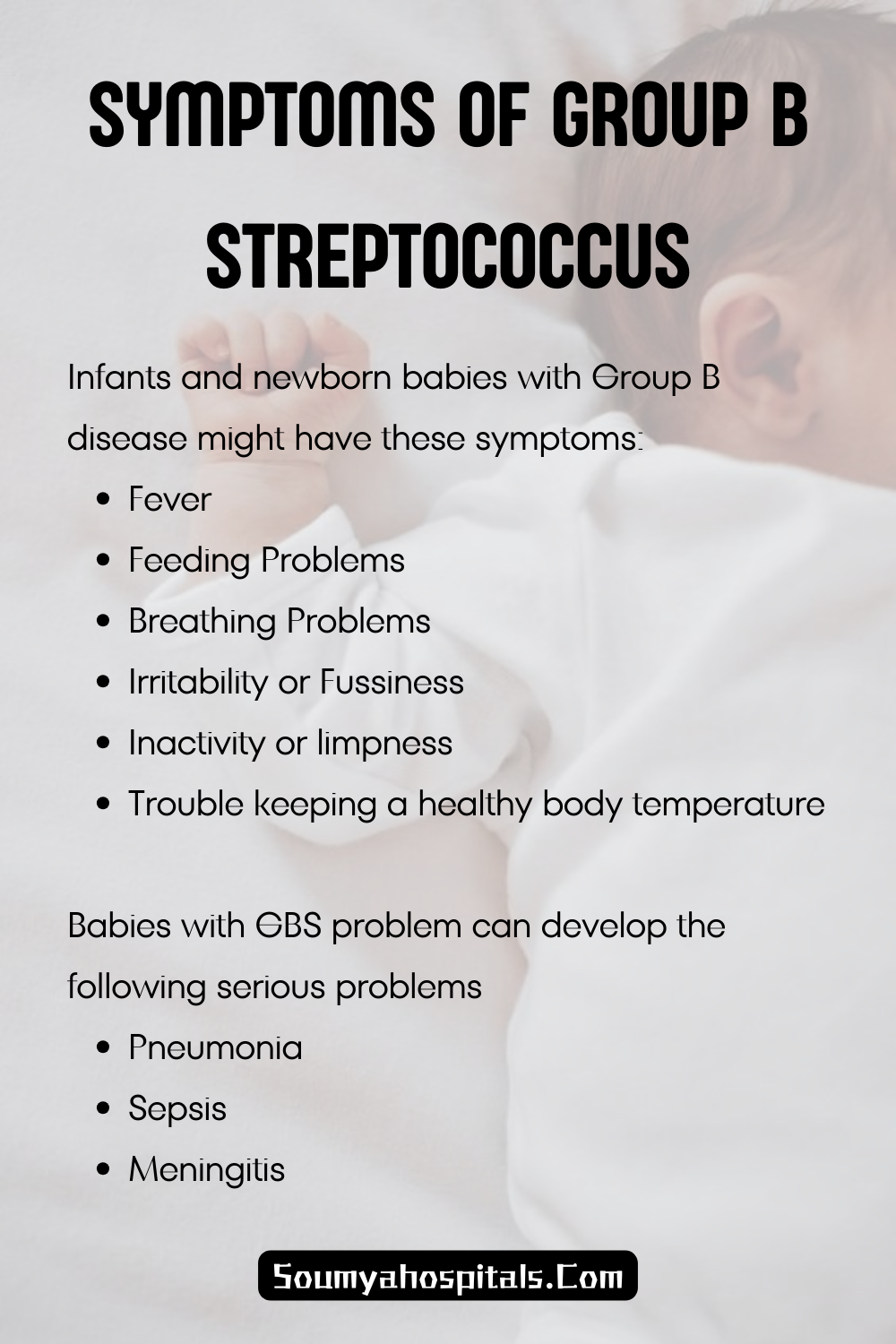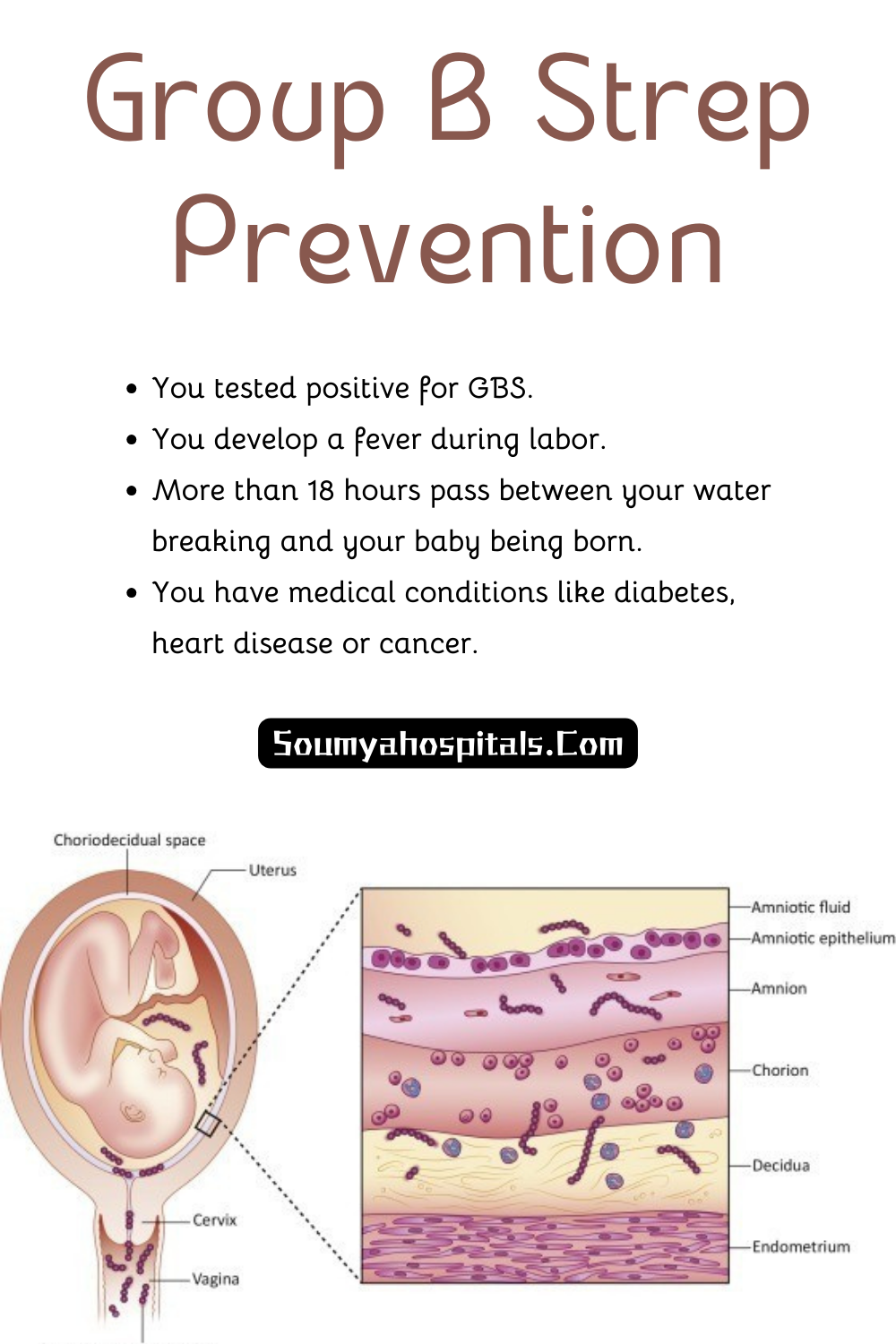Important Tests during pregnancy help check the baby's growth and health, as well as the mother's well-being.
Group B Streptococcus is a type of bacteria called streptococcal bacteria. It is normally found in the urinary, digestive, and reproductive tracts. Pregnant people are screened for group B strep during pregnancy. The bacteria come and go from our bodies, so most people who have it don't know that they do. GBS usually doesn't cause health problems.
Also Check: 10 Useful Pregnancy Tips For Normal Delivery
Have a look at the complete details about the Step B symptoms pregnancy, how it is diagnosed and how it is treated in pregnant women
- What is GBS in Pregnancy?
- How do you Get GBS in Pregnancy?
- Symptoms of Strep B in Pregnancy
- How a Baby Gets GBS?
- How is the Group B Streptococcus Test Performed?
- Management and Treatment for GBS
- How to Prevent GBS in Pregnancy?
- Does GBS go away after pregnancy?
- What happens if you test positive for group B strep during pregnancy?
- What causes a woman to get group B strep?
What is Group B Streptococcus Test?
Group B strep or GBS or Group B Streptococcus is an infection caused by bacteria that is found in the vagina or rectal area. Around 25% of pregnant women have GBS disease, but they can't find it as it doesn't cause symptoms.
A pregnant lady with group B strep can pass the bacteria to their baby during vaginal delivery. Infants, older people or persons with undeveloped immune systems are more likely to develop complications from GBS.
Most infants who get group B don't become sick. However, the bacteria can cause severe and life-threatening infections in a small percentage of newborns. Doctors test for group B strep as part of your routine prenatal care. If the test gets positive, then the provider will treat you with antibiotics.
What Problems Can Group B Streptococcus Cause?
Health issues from GBS are not common. However, it can cause illness in some people, such as the elderly and those with some medical conditions. Group B Strep can cause infections in the blood, lungs, skin or bones.
Almost 1 in 4 women have GBS. In pregnant women, it can cause infection of the urinary tract, placenta, womb, and amniotic fluid. Even if they don't have any symptoms of infection, pregnant women can pass the infection to their babies during labor and delivery.
Group B Strep Symptoms

Know Strep B Symptoms in Pregnancy from the following sections:
- Fever
- Feeding Problems
- Breathing Problems
- Irritability or Fussiness
- Inactivity or limpness
- Trouble keeping a healthy body temperature
Babies with GBS problem can develop the following serious problems
- Pneumonia
- Sepsis
- Meningitis
How a Baby Gets GBS?
The two main types of GBS in babies are as follows:
- Early-onset infection: Almost 75% of babies with GBS become infected in the first week. Group B Strep infection is usually apparent within a few hours after birth. Premature babies face a higher risk if they become infected, but most babies who get GBS are full-term.
- Late-onset infection: Infection can also occur in infants one week to three weeks after birth. Late-onset infection is less common and is less likely to result in a baby's death than early-onset infection.
How is the Group B Streptococcus Test Performed?
Pregnant women are routinely tested for GBS late during the pregnancy between 35 and 37 weeks. The test is simple, inexpensive and painless. A large cotton swab called culture is used to collect samples from the vagina and rectum. These samples are tested in the laboratory to check for GBS. The results will be available in 1 to 3 days.
If the test sample says "GBS positive, then bacteria is present in her body, but not sure that she or her baby will get affected by it.
Group B Strep infection in babies can be diagnosed by testing blood samples or spinal fluid. but not all babies born to GBS-positive mothers require testing. Most healthy babies are watched to see if they have signs of infection.
Management and Treatment for GBS
Doctors prevent GBS infection in your infant by treating pregnant women with intravenous (IV) antibiotics during labor and delivery. The most commonly used antibiotic is penicillin or ampicillin. Giving antibiotics at this time helps prevent the spread of Group B from the mom to the newborn.
It's not effective to treat GBS earlier than delivery. The antibiotics work best when given at least 4 hours before delivery. Around 90% of infections are treated at this time.
One exception to the treatment timing is when GBS is detected in urine. When this is the case, oral antibiotic treatment begins when Group B Streptococcus is detected. Antibiotics should be given through IV during labor.
Any pregnant woman who has previously given birth to a baby and developed a GBS infection or who had a urinary tract infection in this pregnancy caused by GBS will also be treated during labor.
Group B Strep Prevention
Anyone can get GBS. Some people are at higher risk due to certain medical conditions or age. The following factors increase your risk for having a baby born with Group B Strep:

- You tested positive for GBS.
- You develop a fever during labor.
- More than 18 hours pass between your water breaking and your baby being born.
- You have medical conditions like diabetes, heart disease or cancer.
Getting screened for GBS and taking antibiotics is the best way to protect your baby from infection.
FAQs on Group B Strep in Pregnancy
1. Does GBS go away after pregnancy?
Yes, GBS can go away after pregnancy. Testing positive for Strep B does not mean you will have it forever. But you will still be considered a carrier for the rest of your life.
2. What happens if you test positive for group B strep during pregnancy?
Group B Strep infections during pregnancy may lead to preterm labor or, if the baby is infected while in the womb or stillbirth. Pregnant women with GBS can pass the bacteria to their newborns and some of the babies become infected with Strep B.
3. What causes a woman to get group B strep?
Strep B is not a sexually transmitted disease. Just like other bacteria, GBS can be passed from person to person through direct contact. As it is found in the vagina and rectum, it can also be passed on during sex.
Conclusion
We are expecting data about Group B Streptococcus Test is useful for you. If you want to know more about pregnancy screening tests, then visit our page regularly.
